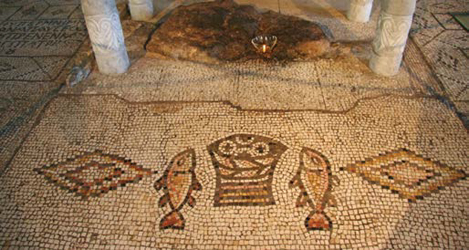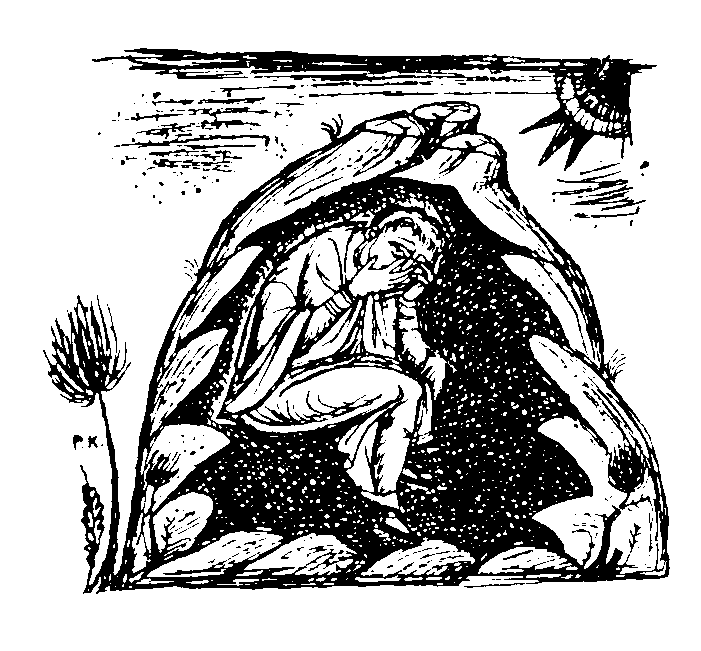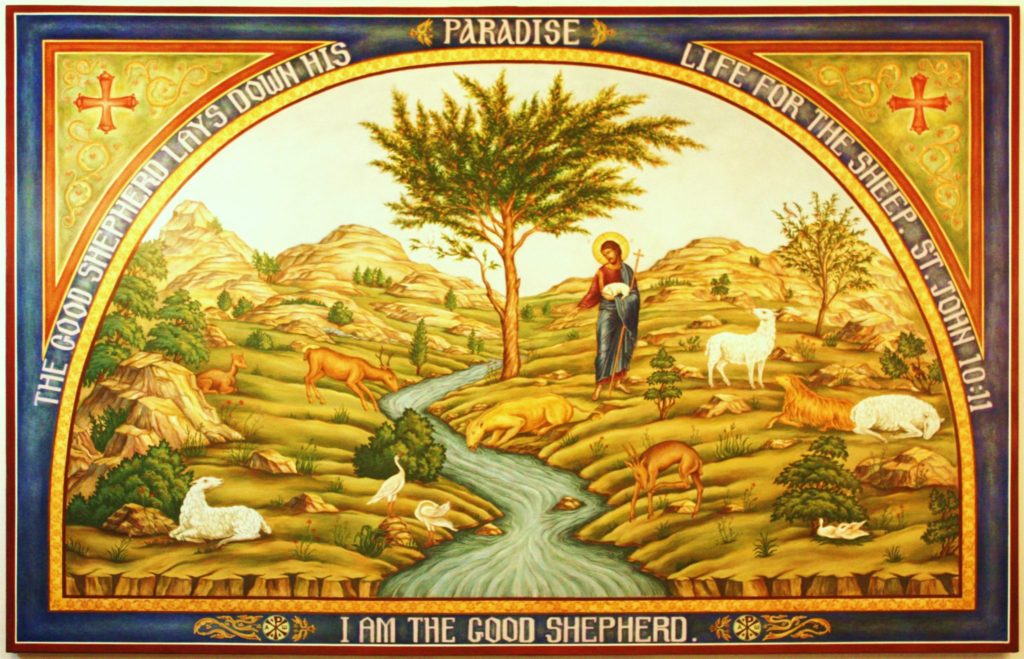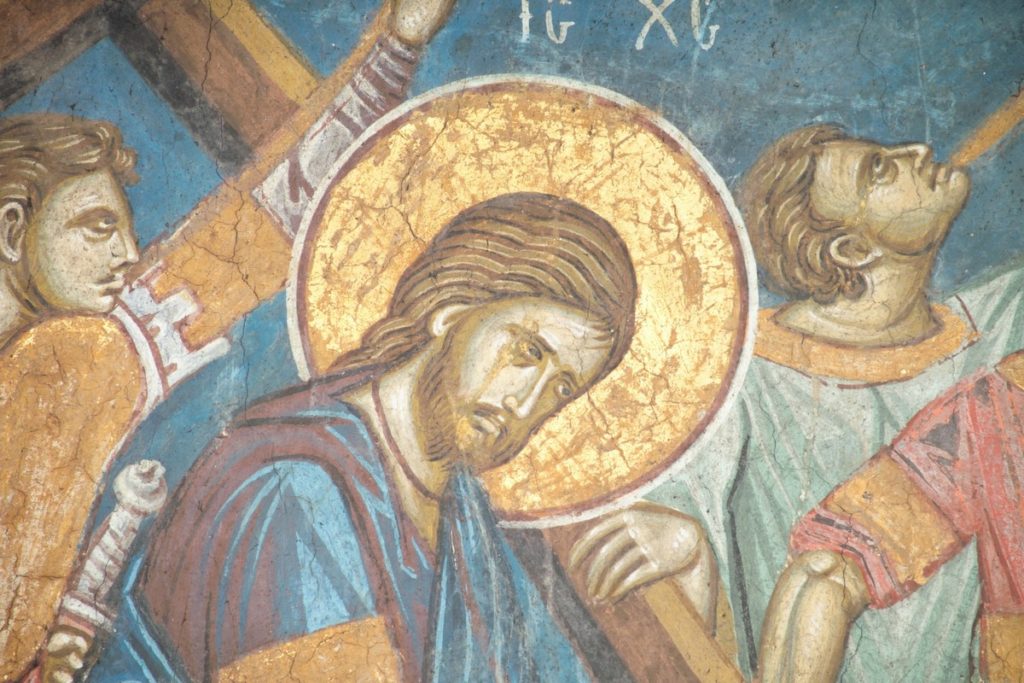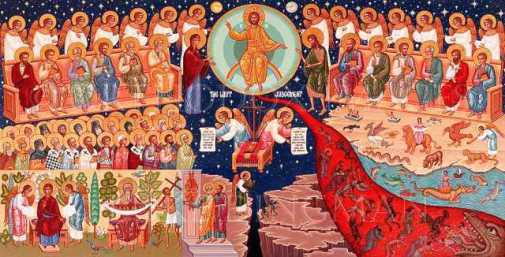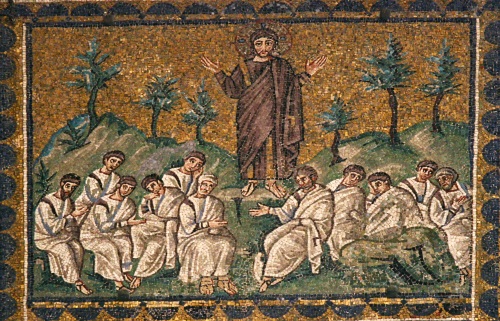Tuesday of the Second Week of Matthew
Listen to an audio podcast of this post at https://www.spreaker.com/episode/how-not-to-get-fooled-tuesday-of-the-second-week-of-matthew–60579186
Today’s reading from the Holy Gospel is Matthew 7: 15-21
The Lord said: Beware of false prophets, which come to you in sheep’s clothing, but inwardly they are ravening wolves. Ye shall know them by their fruits. Do men gather grapes of thorns, or figs of thistles? Even so every good tree bringeth forth good fruit; but a corrupt tree bringeth forth evil fruit. A good tree cannot bring forth evil fruit, neither can a corrupt tree bring forth good fruit. Every tree that bringeth not forth good fruit is hewn down, and cast into the fire. Wherefore by their fruits ye shall know them. Not every one that saith unto me, Lord, Lord, shall enter into the kingdom of heaven; but he that doeth the will of my Father which is in heaven.
St. Theophan the Recluse reminds us that there are false prophets in every generation, and he cites the example of the false prophets of his time, the scientistic ideologues and liberal churchmen of the late 19th century, who were promising a utopia on earth based on “progress” and “freedom” apart from Christ and the Church:
Beware of false prophets (Matt. 7:15). From the beginning of Christianity and to this day there has not been a time when this warning was not applicable. The Lord did not indicate exactly which false prophets to beware of, for how could they be pinpointed? They change like fashions and are continually generating more like them. They always appear in sheep’s clothing, with a likeness of good will in their deeds and a mirage of truth in their speech. In our time their clothing is sewn of progress, civilization, education, freedom of thought and deed, a personal conviction which does not allow for faith, and such like. All of this is a deceptive cloak. Therefore, if you come across this show of clothing, do not be hasty to open your ears to the words of “prophets” dressed in such clothes. Examine closely whether there is a wolf concealed under this sheep’s clothing. Know that the Lord is the only motivator toward true perfection, the sole softener of hearts and customs, the sole educator, the sole giver of freedom and filler of the heart with a feeling of the truth which forms a conviction so strong that nothing in the world has the power to shake it. Therefore, as soon as you perceive in these new “ prophets’ ” talk some shadow of contradiction to the teaching of the Lord, know that they are predatory wolves, and turn away from them. – Thoughts for Each Day of the Year, pp. 123-124
This dream of “civilization,” “freedom,” and “progress” has utterly failed by now, of course, as we all know, though some blind souls still believe in it – witness the absurdly fatuous faith placed in the “science” establishment during the Covid psy-op of recent years. Sensible folk, however, have come to realize that “progress” towards a “better world” based on “science” is a long-discredited 19th century myth, not a reality. It is simply another false religion that needs to be relegated to the dustbin of history, another example of false prophets’ leading the masses astray.
Our own time, however, has produced its own false prophets, and there are so many, whose teachings are so varied, fragmentary, and outrageous, that public life has degenerated into a vast psychiatric hospital where the lunatics are in charge. Amid the chaos, the only reliable and sane voice is that of the Church, for alone now of all societal structures and sources of meaning, the Church remains what She has always been: the one Body of Christ, the one society based on the Truth with a capital T, the Rock Who is Christ.
Knowing, however, that even the vast majority of the historical Church leadership has now joined the Gadarene rush into the swirling waters of postmodern relativism via the globalist ecumenism project, one is faced with the challenge of discerning who are the wolves in sheep’s clothing at the head of what appears to be the Church. This is not an entirely new situation; we all know of several times in Church history when the state-approved power structure became heretical and the real churchmen were disorganized, outwardly disunited, few, and banished to the margins, like now. There are, however, notable attributes of our situation which distinguish it from similar situations in the past. Here are three of them:
1. The techniques and technology of deception have been perfected to the extent that very few people can separate the virtual from the real. Most people now base their perception of reality on visual images and short verbal messages seen and heard on the Internet.
2. In Orthodox circles, a bewildering multiplicity of visions, signs, wonders, dreams, myrrh-streaming icons, miracles of “elders,” and so forth – all heavily marketed on the Internet – have become the decisive criteria for discerning the boundaries of the Church, replacing the traditional criteria of the Scriptures, the canons, the teachings of the Fathers, and the historical examples of the saints who combatted heresy in their time.
3. Life today is so chaotic that even a watered down and chimerical “Orthodoxy,” Orthodoxy-Lite, so to speak, a charming facade of beauty and comfort, the appearance of religion without the power thereof, presents itself persuasively as a safe haven in the storm. The bar is so low that something, anything, is better than nothing. When the bombs are falling all around you, any bomb shelter will do – or so it seems.
In such a situation, we, like the Apostles, are tempted to cry out, “Who then can be saved?” And the Lord assures us now, as He did the Apostles, that though to man such is impossible, with God all things are possible. He assures us now, as He did the Prophet Elias, that He has reserved unto himself 7,000 who have not bowed the knee to Baal. Our duty is not to change the world or even to rescue the historical Church institutions; it is to remain among the 7,000 who have not bowed the knee to Baal.
Thus to discern where the true shepherds are, where the Church really is, is required of us. I have written extensively about how to do this, in my Orthodox Survival Course series, classes 41 through 52, and I pray that those who have already read or listened to these talks have benefited from them and will benefit by reviewing them, and that these talks will benefit more souls in the future.
( To start with Class 41, here are the links for text and for audio:
https://www.spreaker.com/episode/orthodox-survival-course-class-41-situation-report-faith-comes-first–18900778 )
For such material to benefit you, however – for it to help you decide what you should actually do – you must simultaneously be engaged in cleansing the mind and the heart, so that your own passions and delusions do not lead you astray. To help with this, I encourage everyone to listen to our metropolitan’s sermons at the Orthodox Tradition website: https://www.youtube.com/OrthodoxTradition
Finally, at the risk of sounding like a broken record: We must engage in replacing our logismoi – the never silent fragmentary thoughts that eat up most of our mental life – with spiritual attentiveness through assiduously working at the Jesus Prayer. Here is what the late Archbishop Anthony of Los Angeles, of blessed memory, wrote in his Last Will and Testament to his spiritual children:
Our Lord destines us to a great blessing: to belong to the Holy Orthodox Church, for only here can we obtain Salvation, if we do not waste the time of preparing ourselves for eternity.
To avoid wasting this time, let us turn to the awesome admonitions of the Word of God, Gospel parables, prayers and church hymns which teach us that our mind is filled with unnecessary triviality and troubles, THAT THE ENEMIES OF OUR SALVATION GIVE TO US. And we, in our carefree manner, like to think that they are our own harmless and pleasant thoughts. Having distracted our mind from God, the enemy begins bringing sinful thoughts and wishes, which are extremely hard to resist. TO FIGHT AGAINST SIN SUCCESSFULLY, ONE MUST REPLACE HIS THOUGHTS WITH CONTINUAL PRAYER TO JESUS.
All the Saints had to do this to reach their sanctity. There is no other way. The great Saints of ancient times, as well as the Holy Father Seraphim of Sarov, St. John of Kronstadt, Holy Father Paissy Velichkovksy and the great Startsy of Optina all testify to this.
This prayer saves and is successful only if done patiently and humbly, not with the goal of pleasure, but rather release from sins, and it demands a lot of time.
Our Merciful Lord Jesus Christ, grant us eternal salvation by the prayers of the Most Holy Theotokos and Ever Virgin Mary, and of all the Saints! Amen.
(Signed:)
Archbishop Antony of Los Angeles
24 November / 7 December 1995
Holy Martyr Katherine


